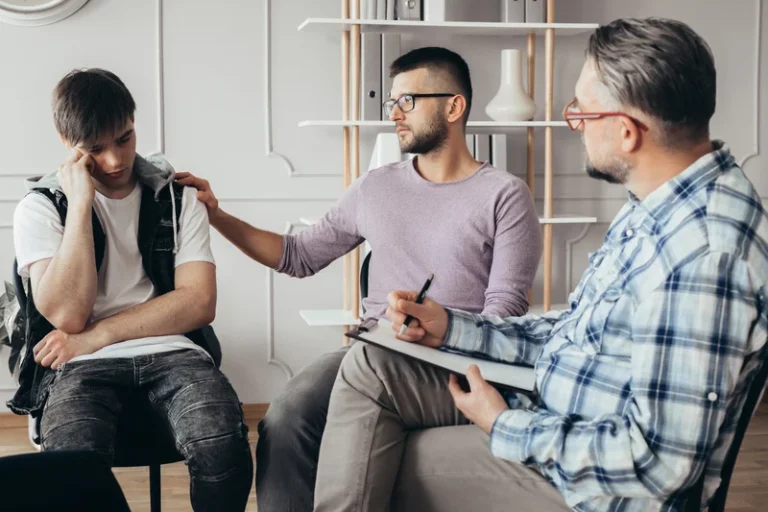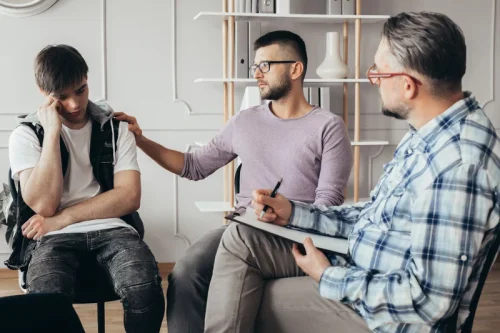
Stopping and starting your antidepressants can make your depression worse. Doing so also could cause symptoms related to the stopping of antidepressants unless you follow medical advice. A new video about postpartum depression marks the launch of a mental health education collaboration by two NIH Institutes and one of the nation’s largest African-American women’s organizations. FDA approval of the postpartum depression treatment brexanolone represents the final phase of a bench-to-bedside journey for this drug — a journey that began in the NIMH Intramural Research Program. NIMH experts are available to provide information on postpartum depression and the importance of, and the science underlying, this new drug. Researchers have uncovered sex-based differences in the development of the hippocampus and amygdala—brain areas that have been implicated in the biology of several mental disorders that impact males and females differently.
Therapy

Naltrexone, Acamprosate, and disulfiram are also FDA-approved medications that can help curb alcohol cravings. “Therapeutic interventions designed to address both issues often include a focus on addressing emotional pain or trauma, as well as developing and practicing healthy coping behaviors,” says Kennedy. In residential treatment, “an individual stays in a treatment setting, receives intensive therapy, and is physically separated from alcohol in order to recover,” says Kennedy.
- Side effects such as dizziness, drowsiness, and difficulty concentrating can occur when mixed with alcohol.
- Having either depression or alcohol use disorder increases your risk of developing the other condition.
- Excessive alcohol drinking can also cause problems socially, such as issues with family, school, employment, and friends.
- It’s very important to address both alcohol misuse and depression simultaneously when looking into treatment options, as these conditions are closely intertwined and can exacerbate each other, Kennedy explains.
Depression After Quitting Smoking: Understanding the Connection and Finding Support
It’s very important to address both alcohol misuse and depression simultaneously when looking into treatment options, as these conditions are closely intertwined and can exacerbate each other, Kennedy explains. Some experts also suggest that both depression and alcohol use disorders share underlying pathophysiology in that they are both neuroinflammatory conditions. Though depression is experienced by many, it can often go undiagnosed and untreated. You don’t have to battle the depression alone and relying on alcohol to make you feel better will only cause further pain.
- The standard medications of choice in this situation are selective serotonin reuptake inhibitors (SSRIs).
- • Acamprosate can be used after alcohol abstinence to alleviate anxiety, restlessness, dysphoria and insomnia as your brain adjusts to life without drinking.
- “They might experience brain zaps,” unpleasant jolts that feel like electricity.
About the Acting NIMH Director
And, having more severe depression doesn’t necessarily mean you’ll have a more challenging time Alcoholics Anonymous recovering from AUD. The link between depression and alcohol use disorder is complex. With the right treatment, it’s possible to manage both disorders. The aforementioned depressive disorders each have slightly different diagnostics criteria.

Expert Opinions and Guidelines on Mixing Antidepressants and Alcohol
Addiction helplines, like the one operated by American Addiction Centers, can also be valuable resources for those seeking treatment. does alcohol make depression worse Our compassionate staff stands ready 24/7 to help answer your questions about addiction and co-occurring disorders, help you find suitable rehab centers, and verify your insurance coverage. Depending on your intoxication level, you may experience decreased inhibition, loss of judgment, confusion, and mood swings, among others. “In our society alcohol is readily available and socially acceptable,” says Jill Bolte Taylor, PhD, author of Whole Brain Living, explains. “Depression and alcohol misuse are often tied because we take a depressant to counter a chemical depression which only makes it worse.” During therapy, you can learn coping mechanisms that can help you return to life without drinking.





